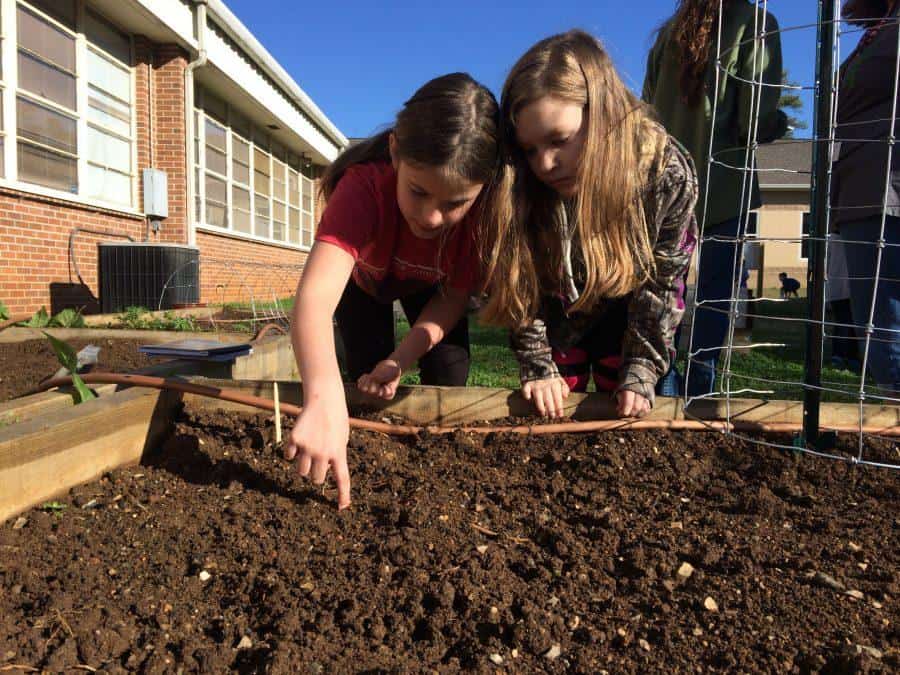By Serena Bailey | Staff Reporter
When Eric Courchesne moved from Austin, Texas to Tuscaloosa four years ago, he scoured the local non-profit scene to find the most compelling organization doing what he felt was the most important work. He found it, he said, in an organization that was then called Druid City Garden Project, now Schoolyard Roots.
Schoolyard Roots works to help increase food literacy and engage students with their sources of food and academics through hands-on teaching. Their main program, Gardens 2 Schools, works with local elementary schools to install teaching gardens in which students grow food to connect classroom activities to the real world.
“We train teachers to use our standards-based curriculum so that they can teach state standards outside, in a hands-on and engaging setting,” said Courchesne, the interim director at Schoolyard Roots. “We take what kids would learn in the classroom and give teachers the opportunity to teach some of that content outside in the garden.”
The curriculum designed by Schoolyard Roots also includes lessons to help the students understand where their food comes from. The organization is currently working on expanding their network of teaching gardens to every elementary school in Tuscaloosa County, as well as some other schools across the state.
Schoolyard Roots also works with The University of Alabama, partnering with the Honors College for a service learning class called “Let’s Grow” where students learn about the Schoolyard Roots curriculum and volunteer with after-school programs led by the organization focusing on teaching elementary students entrepreneurial ideas.
Kathryn Drago, the instructor of that course, said that this semester, while many students have different reasons for taking the course, they usually want to help younger kids learn about the role of nutrition in their lives and how healthy eating can benefit them.
“They’re excited about working with the students,” she said. “They’re working really hard to get into the nitty-gritty of teaching. A lot of them have had sort of informal educational experiences where they’ve been counselors or mentors to kids, and it’s kind of their first more formal experience and I appreciate it the way that they’re digging into thinking about how to ask really good questions, how to keep the kids participating, all the things that teachers have to consider.”
Drago’s students help their elementary school children learn how to set up a farm stand, including everything from location to pricing and promotion. She said she has seen the impact the organization has on the students at the schools where the gardens are located.
“They try different vegetables, they are eating more vegetables and are curious about them and that it inspires healthy habits in the students,” she said. “I think it’s this community piece where the students are taking the vegetables and fruits that they’ve grown and they’re selling it to the community and so parents get to interact but they also get to think about foods at home and making different recipes and the kind of the community that it builds to both prepare the food and then sit down and eat it together.”
Drago’s observations are backed up by data. A study of the Schoolyard Roots curriculum done by UA researcher Caroline Boxmeyer found that it increased children’s willingness to try and eat vegetables and their involvement with food preparation at home.
“Probably one of the most compelling things about our program is being able to see a student pull a carrot that they seeded months ago out of the ground for the first time,” Courchesne said. “The wonder and amazement on their face and in their expression when the green leafy plant that has grown up shows to be a great orange carrot that they’re used to seeing in the grocery store. The awe that they experience when they grow their own food and the excitement they have eating it is something that’s really special.”









